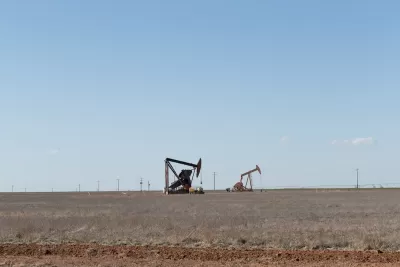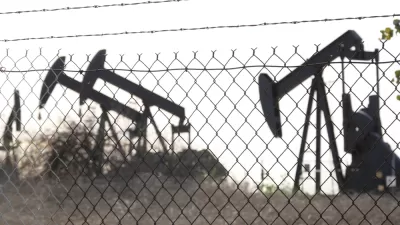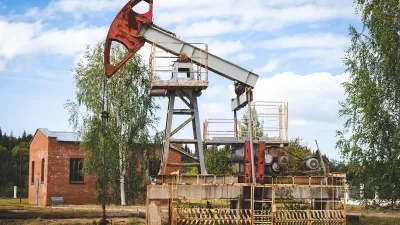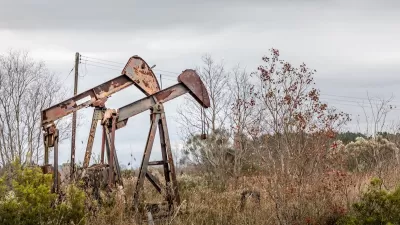Abandoned oil and gas wells across the U.S. pose significant environmental, health, and safety risks, with many leaking hazardous gases and chemicals, highlighting regulatory failures and the immense financial burden of remediation.

Abandoned oil and gas wells, known as “zombie wells,” pose significant environmental and safety risks across the United States. An estimated 3.5 million wells are scattered nationwide, with many leaking hazardous substances such as methane, benzene, and hydrogen sulfide. Communities near these wells face threats ranging from water contamination to catastrophic explosions. In West Texas, rancher Laura Briggs’ property is marred by leaking orphan wells, highlighting regulatory failures and the immense challenges of managing abandoned sites.
An ABC News investigation tested 76 abandoned wells across five states, discovering leaks in 40 of them. Leaking wells were found in a variety of locations, from Kansas farms to Los Angeles hiking trails, emitting combustible gases and toxic chemicals. Offshore, seven out of ten wells tested near Houston were leaking. The findings underscore the scope of the problem, with abandoned wells emitting potent greenhouse gases and carcinogens that threaten public health and accelerate climate change.
The cost of plugging orphan wells is staggering, with estimates exceeding $250 billion nationwide. States like Texas face mounting pressure to address the issue, yet available funds cover only a fraction of the need. Current bonding requirements for oil companies often fall short, leaving taxpayers to foot the bill. Attempts to reform regulations face resistance from industry groups, perpetuating a cycle where neglected wells remain unaddressed, endangering both communities and ecosystems.
Thousands of abandoned wells lie buried beneath U.S. cities, including Los Angeles, where methane vents disguised as fence posts reveal the hidden danger. Residents of neighborhoods like Vista Hermosa face elevated health risks, with illnesses linked to long-term exposure to leaking wells. Along hiking trails in El Escorpion Park, leaking wells continue to emit dangerous levels of gas. Regulatory agencies acknowledge the risks and promise action, but progress remains slow, leaving residents and the environment vulnerable.
FULL STORY: Abandoned oil and gas wells in US bring fears of leak dangers, ABC News investigation finds

Manufactured Crisis: Losing the Nation’s Largest Source of Unsubsidized Affordable Housing
Manufactured housing communities have long been an affordable housing option for millions of people living in the U.S., but that affordability is disappearing rapidly. How did we get here?

Americans May Be Stuck — But Why?
Americans are moving a lot less than they once did, and that is a problem. While Yoni Applebaum, in his highly-publicized article Stuck, gets the reasons badly wrong, it's still important to ask: why are we moving so much less than before?

Research Shows More Roads = More Driving
A national study shows, once again, that increasing road supply induces additional vehicle travel, particularly over the long run.

Concrete to Community: A Schoolyard Makeover in West Philly
With guidance from the Trust for Public Land, third graders at Overbrook Elementary are leading the redesign of their asphalt schoolyard into a vibrant green space, learning valuable skills and creating lasting community impact in the process.

Which US Rail Agencies Are Buying Zero-Emissions Trains?
U.S. rail agencies are slowly making the shift to zero-emissions trains, which can travel longer distances without refueling and reduce air pollution.

San Diego School District Approves Affordable Housing Plan
The district plans to build workforce housing for 10 percent of its employees in the next decade and explore other ways to contribute to housing development.
Urban Design for Planners 1: Software Tools
This six-course series explores essential urban design concepts using open source software and equips planners with the tools they need to participate fully in the urban design process.
Planning for Universal Design
Learn the tools for implementing Universal Design in planning regulations.
City of Moreno Valley
Institute for Housing and Urban Development Studies (IHS)
City of Grandview
Harvard GSD Executive Education
NYU Wagner Graduate School of Public Service
City of Cambridge, Maryland
Newport County Development Council: Connect Greater Newport





























